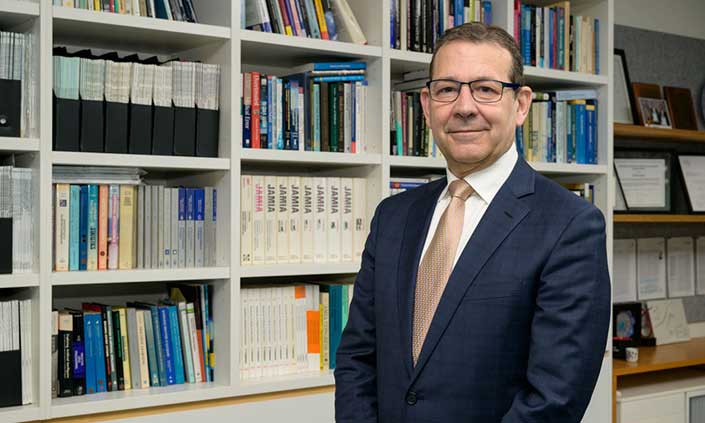AI scribes – a new era in healthcare
Digital health expert Professor Enrico Coiera speaks to national health media on the growing use of AI scribes in clinical practice.

Professor Enrico Coiera, Director of the Centre for Health Informatics at the Australian Institute of Health Innovation (AIHI), spoke on ABC Radio National’s The Health Report on the growing use of AI scribes in clinical practice. He described the technology as both a game-changer and a regulatory challenge.
Professor Coiera described how large language models (LLMs) – the same technology behind tools like ChatGPT – are being rapidly adopted in Australian general practice.
“Around 50% of GPs in Australia are either using or planning to use AI scribes,” said Professor Coiera. “That’s an extraordinary uptake for a technology that didn’t exist just two years ago.”
AI scribes are designed to assist clinicians by listening to consultations and generating clinical notes, referral letters, or summaries. While the technology offers significant benefits in reducing administrative burden and supporting clinician wellbeing, Professor Coiera emphasised the importance of informed patient consent and robust data governance.
“It’s not enough to have a sign on the wall that AI is being used. Patients must be informed directly and understand the risks and benefits,” he said.
Professor Coiera also addressed concerns around data privacy, noting that most AI scribe tools used in Australia are designed to keep data onshore and securely stored. However, he cautioned that, like all digital systems, they are not immune to data breaches.
On the topic of regulation, Professor Coiera highlighted the need for ongoing oversight of AI tools that evolve over time. He welcomed recent guidance from the Therapeutic Goods Administration (TGA), which clarified that AI scribes making clinical recommendations must be subject to the same safety and effectiveness evaluations as other medical technologies.
Professor Coiera concluded by encouraging both clinicians and patients to view AI scribes as a positive development, while remaining vigilant about their limitations.
“AI scribes may not save time, but they can reduce the burden of documentation and help prevent burnout. Ultimately, the responsibility for accuracy lies with the clinician – and that’s something future medical training must prepare for.”
If you're working in health, tech, or policy, this is a must-listen.
Listen to the full interview: What AI scribes can (and can't) do for healthcare - ABC listen
For more information or to arrange interviews, contact Chrissy Clay.